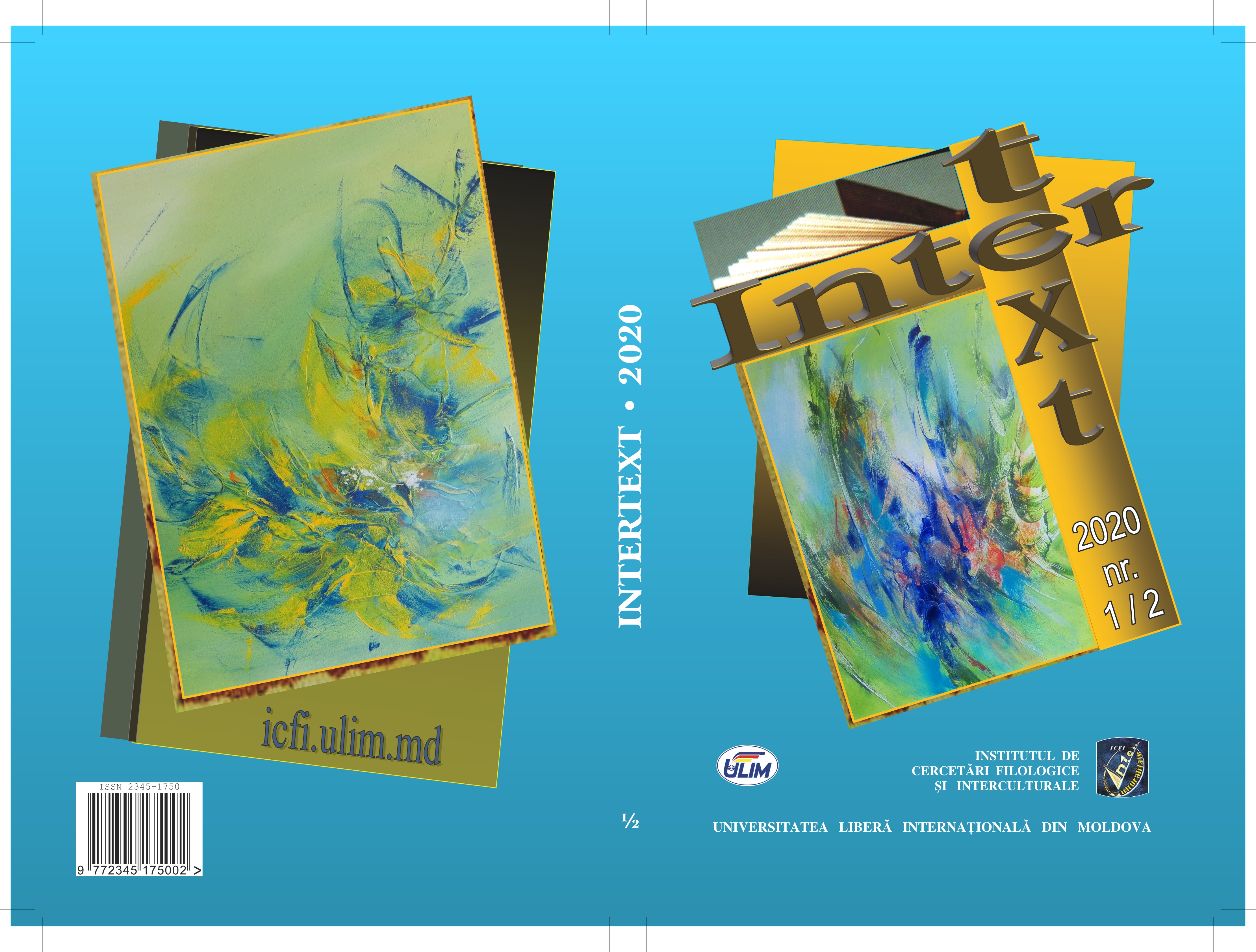Polisistemul Literar și Cultural și Problema Literalismului
în Cadrul Actului Traducerii
The Literary and Cultural Polysystem and the Problem of Literalism in the Framework of the Translation Act
Author(s): Irina-Marinela DeftuSubject(s): Anthropology, Social Sciences, Language and Literature Studies, Theoretical Linguistics, Studies of Literature, Lexis, Semantics, Culture and social structure , Translation Studies
Published by: Universitatea Liberă Internațională din Moldova
Keywords: polysystem;literal;translation;culturemes;dynamic/cognitive equivalence;formal/lexical equivalence;cultural imperialism; linguistic imperialism;
Summary/Abstract: In this work we intend to investigate some aspects related to the act of translation represented by the problem of the literary and cultural polysystem, the approach and consideration of a text as part of a tradition, determined linguistically, culturally, etc. and the problem of literalism, a reassessment of the process and the literal option of rendering and converting in another code the message from a source-text into a target-language – literal option considered most often a process for mechanical rendering of the communicated message by the source-text and a monotonous one. Moreover, throughout our research, we will consider the idea that by performing the act of translation – a catalyst for a cultural flow and a cultural consumption and, at the same time, "a process of social influence through which a nation imposes to other countries their own beliefs, values, knowledge and behavioral norms, as well as their general lifestyle” – the product (the resulting text in the target-language) represents, in fact, an influx of the source-culture, a cultural imperialism that ultimately determines a linguistic imperialism through a subtle strategy of attractiveness through culture by generating a non-coercive power, a soft power. Thus, following the linguistic, but also cultural contact within the act of translation, certain transfers are inevitably generated either from the source language to the target language or from the target language to the source language, and the option for one process or another of the translator can be explained from the perspective of a cultural or dogmatic conditioning within a linguistic community.
Journal: Intertext
- Issue Year: 2020
- Issue No: 1-2
- Page Range: 88-96
- Page Count: 9
- Language: Romanian

